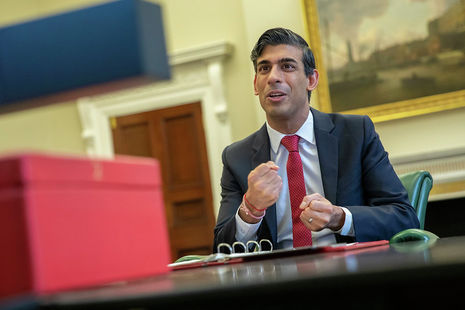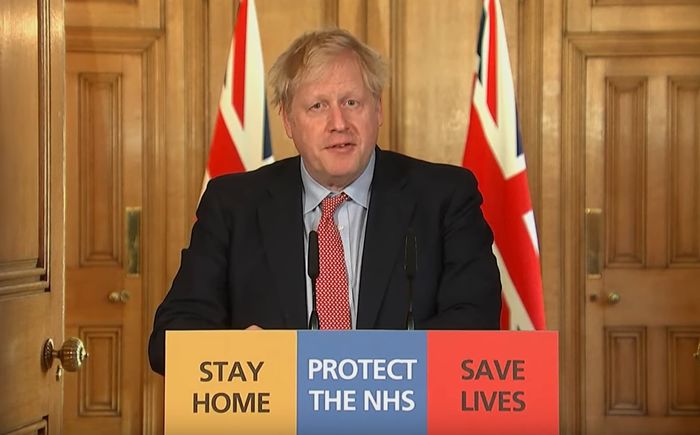Our economic systems have failed. Will Covid-19 shock us into sense?
Louis Young argues that the pandemic offers an important opportunity on par with 1945 and 1979 to rethink our economic system.

In 1945, ahead of the first post-war election, Clement Attlee’s Labour party released its manifesto. “The gallant men and women in the Fighting Services … deserve and must be assured a happier future than faced so many of them after the last war,” it read.
It was a remarkably prescient document. The policies enumerated in the manifesto, borne of the frustration and misery experienced during the Depression and the war, included nationalisation, the creation of a National Health Service, education investment, social insurance, and a target of full employment.
The major economic crisis of the 1970s again provided a call to action in British politics. Massive inflation and consecutive crippling crises gave rise to a new era of politics. Thatcherite neoliberalism, embodied by the edicts of personal freedom, limited government and denationalisation – principles which have thus far survived five Conservative and two Labour prime ministers – took the place the post-war consensus.
These eras were not of the kind you tend to see in the transition between governments. Rather, spurred by crises, they marked changes in the basis of political imagination, within which governments could manoeuvre but could not break free of. Crises are naturally catalytic to this kind of transformation: they expose structural weaknesses and show the public where change is needed.
The Covid-19 pandemic provides such an opportunity. The extensive and visible role the state has played in the management of the pandemic has been a departure from the neoliberal laissez-faire policy which has dominated since 1979, and long-standing social problems have suddenly been thrust into the public consciousness.
Even before the pandemic, there were signs of neoliberalism’s declining effectiveness. Deregulated financial markets led to the reckless gambling that caused the 2008 financial crisis, and since then a backward obsession with debt by Cameron’s government has gutted public services. The environment is not being adequately protected, and the neglect of northern industrial towns has prolonged and promoted economic inequities. Whatever benefits freer markets may have initially brought have since evaporated.
“People are looking at the failures of the past and demanding that Covid-19 marks a reassessment of what an economy should be for.”
So, what has changed? It has become clear the rate of NHS funding increase (per capita real increases averaging ~1.4% per year from 2008-09 to 2019-20) has been inadequate, and that social care – one of the issues fought the hardest in recent years by the Labour party – is in dire straits. But post-pandemic change can go further than health and social care reform. People are looking at the failures of the past and demanding that Covid-19 marks a reassessment of what an economy should be for. When surveyed in the middle of last year, only 12% said they want Britain to ‘go back to normal’ after the pandemic.
What could a post-neoliberal era look like? Of course, health and social care must be properly funded and endemic staff shortages must be rectified. But change must be wider than this. Deprived regions must receive extensive state investment, we must carry out an ambitious clean energy strategy, ill-advised privatisations such as in the rail networks must be undone, and the building of affordable houses must be accelerated. Moreover, primary, secondary and vocational education – and apprenticeships – must be targeted for major additional funding. Tax reform and new thinking in monetary policy can provide funding for these projects. These ideas are not radical, nor are they particularly controversial in and of themselves. They do not dispense with market efficiencies; they constitute a reform of free markets based on where we know they have failed.
Politically, though, there are problems. Because his term is only scheduled to end in 2024, Boris Johnson’s government will, in all likelihood, be responsible for managing the fallout and recovery from the pandemic they mismanaged. Such a situation is patently unideal. The economic era we live in is the creation of the Conservative party – it is unlikely that the Tories will muster the energy to institute meaningful, permanent reforms to our current system.
Within the norms of our present political system, the Conservatives benefit greatly from being the party most strongly associated with the status quo. It is telling that, in order to win power in 1997, the Labour party had to conform to the Tories’ economic ideas, adopting Conservative spending limits and continuing privatisation during its time in power. Being the ‘natural party of government’ requires policy norms to conform to your ideas, not the other way around; transformational economic change is well outside the Conservatives’ comfort zone, making it doubtful that the party will support a necessary economic transformation. It is necessary, sooner rather than later: it is very possible that any political impetus for change will dissipate before the 2024 general election.
The picture is certainly gloomy. Change is not assured: the 2008 financial crisis did not prompt meaningful reform, even in the financial sector, where the recession originated from pure malfeasance and incompetence.
Yet, it may still be possible that the populist instincts of Johnson will allow for the implementation of some necessary policy, which – if not adequate in scope – will provide a foundation on which future governments can build. Johnson has made bullish signals on infrastructure, on environmental policy, on apprenticeships, and has thus far taken an expansionary tone in fiscal policy.
We should be very, very cautious with crediting Johnson with initiatives yet to be budgeted or begun – he has a proven track record of overpromising in order to score easy political points. Moreover, the initiatives he has proposed are insufficient: his £12bn climate plan only includes £8bn of new spending, according to the Government (Labour says it actually only delivers £4bn).
Johnson's tone, however, is an indication that he is willing to sacrifice his party’s overbearing prudence and small-c conservatism for his own populist instincts. It’s cynical hope, but hope nonetheless.
 News / Right-wing billionaire Peter Thiel gives ‘antichrist’ lecture in Cambridge6 February 2026
News / Right-wing billionaire Peter Thiel gives ‘antichrist’ lecture in Cambridge6 February 2026 News / Cambridge students uncover possible execution pit9 February 2026
News / Cambridge students uncover possible execution pit9 February 2026 News / Man pleads guility to arson at Catz8 February 2026
News / Man pleads guility to arson at Catz8 February 2026 News / Epstein contacted Cambridge academics about research funding6 February 2026
News / Epstein contacted Cambridge academics about research funding6 February 2026 News / John’s duped into £10m overspend6 February 2026
News / John’s duped into £10m overspend6 February 2026









